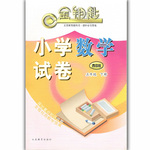题目内容
In the U.S., people prefer waiting for a table to sitting with people they don’t know. This means a hostess may not seat a small group until a small table is available, even if a large one is. If you are sitting at a table with people you don’t know, it is impolite to light up a cigarette without first asking if it will disturb them.
At American restaurants and coffee shops you are usually served tap water before you order. You may find the bread and butter is free, and if you order coffee, you may get a free refill.
Most cities and towns have no rules about opening and closing time for stores or restaurants, though they usually do make rules for bars. Especially in large cities, stores may be open 24 hours a day.
Serving in restaurants are often large, too large for many people. If you can’t finish your meal but would like to enjoy the food later, ask your waitress or waiter for a “doggie bag”. It may have a picture of a dog on it, but everybody knows you’re taking the food for yourself.
“Supper” and “dinner” are both words for the evening meal. Some people have “Sunday dinner”. This is an especially big noon meal.
Tips are not usually added to the check. They are not included in the price of the meal, either. A tip of about 15% is expected and you should leave it on the table when you leave. In some restaurants, a check is brought on a plate and you put your money there. Then the waiter or waitress brings you your change.
1. According to the passage, which statement is true?
A. American people like sitting with people they don’t know.
B. A Hostess always seats a small group at a large table.
C. American people never sit with people they don’t know.
D. American people would not light up a cigarette if the people who sit at the same table mind their smoking.
2. What is served before you order? ______ .
A. Cold water B. Bread C. Coffee D. Butter
3. What do American people always do when servings are too large for them?
A. They take the food home with a doggie bag for their dogs.
B. They leave the food on the table and go away.
C. They ask the waitress or waiter to keep the food for them.
D. They take the food home with a doggie bag and enjoy the food later.
4. What can you learn about “tips” according to the passage?
A. Tips are usually included in the total check.
B. A 15 percent tip in large cities indicates satisfactory service.
C. Tips are supposed to be left on the table when customers leave.
D. People are not expected to pay tips in addition.
D
A
D
C
【解析】

 金钥匙试卷系列答案
金钥匙试卷系列答案The young wonman entered the pool where an injured dolphin(海豚) was swimming. Despite her fear,she felt strong wearing her new leg.
In her second grade. Maja 31 her cous in.Jasmina.After Jasmina’s death.Maja swore she would honor the little girl by 32 with a dolphin,an animal that both girls 33 .”Jasmina never got the c
in.Jasmina.After Jasmina’s death.Maja swore she would honor the little girl by 32 with a dolphin,an animal that both girls 33 .”Jasmina never got the c hance to do it.”says Maja.now32,”so I 34 that someday I’d do it for her.”
hance to do it.”says Maja.now32,”so I 34 that someday I’d do it for her.”
In high school,Maja was 35 about sports. she even planned to become an athlete. 36 ,in 1993. during the eivil war in her home country, a bomb 37 her left leg.
After two years’ 38 in the U.S.,Maja received her first artifierd (人造的)leg. But 39 it didn’t fit well, walking for Maja was painfei 40 she managed to graduart from a loca high school. Then after receiving a 41 from Saint Francis University, she got a job at an insurance firm and 42 started her own campany.
To relax. Maja 43 ofter watch the dolphins play at an auarium (水族馆)near her home.A young dolphin. Winter, who had lost its tail, eaught her 44 One day,Maja happened to see trainers 45 Winter with a high-teeh tail.When they were done.Winter swam freely in the water.Maja was 46 . She managed to find the inventors of Winter’s tail.Within ten days,she had a new leg which freed her the 47 that had troubled her for almost 16years.
Now, Maja was ready to keep her 48 .She went to the aquarium. Lowered herself into the pool and held out a hand to Winter, who approached 49 , then swum away. After a few minutes. The dollop hint let Maja 50 its back Finally .they began to swim around together.
| 【小题1】 |
|
| A.talking | B.living | C.swimming | D.surfing |
| 【小题3】 |
|
| A.pretended | B.deeided | C.perfected | D.agreed |
| A.positive | B.atheistic | C.particular | D.curious |
| 【小题6】 |
|
| 【小题7】 |
|
| 【小题8】 |
|
| 【小题9】 |
|
| 【小题10】 |
|
| 【小题11】 |
|
| 【小题12】 |
|
| 【小题13】 |
|
| 【小题14】 |
|
| 【小题15】 |
|
| A.inspired | B.passed | C.shocked | D.amused |
| 【小题17】 |
|
| 【小题18】 |
|
| A.blindly | B.angrily | C.gratefully | D.cautiously |
| 【小题20】 |
|
